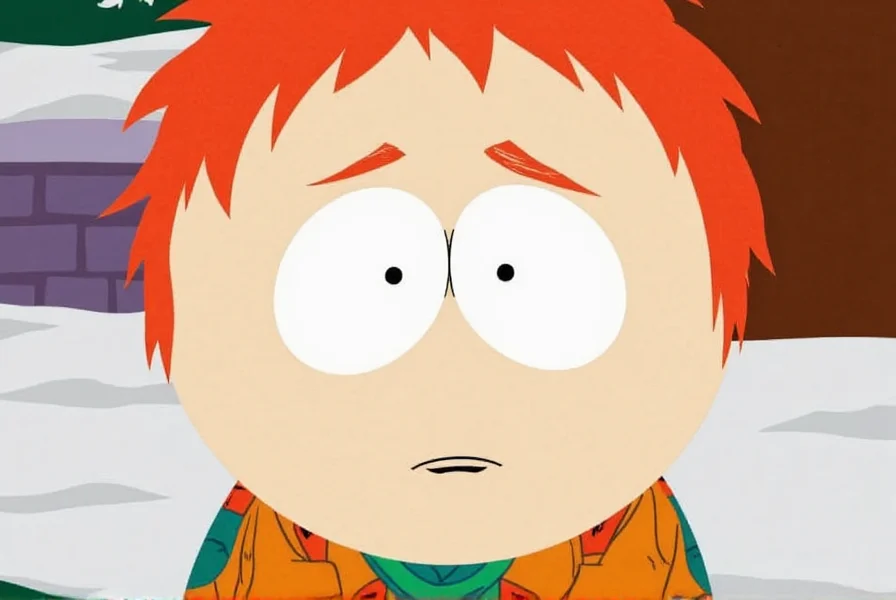When South Park fans search for \u201ccartman ginger,\u201d they're typically seeking information about one of the show's most culturally impactful episodes. This 2005 installment remains relevant years after its original broadcast due to its sharp social commentary and the memorable way Eric Cartman exploits prejudice for personal gain.
Understanding the \u201cGinger Kids\u201d Episode Context
The \u201cGinger Kids\u201d episode centers on Cartman discovering he has red hair, pale skin, and freckles \u2014 characteristics the show labels as \u201cginger.\u201d Rather than accept this identity, Cartman creates the \u201cNational Ginger Head Society\u201d to campaign against \u201cginger kids,\u201d falsely claiming they lack souls. His manipulation of prejudice for social status perfectly demonstrates South Park's signature satirical approach to social issues.
What makes this episode particularly noteworthy is how Cartman ginger storyline serves as a direct parallel to real-world discrimination. The creators use Cartman's character to expose how prejudice often stems from ignorance and how individuals exploit societal biases to gain power. This south park cartman ginger episode cleverly mirrors historical and contemporary discrimination patterns while maintaining the show's trademark irreverence.
Cartman's Role in the Anti-Ginger Movement
Eric Cartman's transformation from potential target to leader of the anti-ginger movement represents one of his most brilliantly manipulative storylines. Initially horrified to discover his \u201cginger\u201d traits, Cartman quickly pivots to become the movement's figurehead, delivering speeches about \u201cginger\u201d inferiority while secretly being one himself.
This cartman ginger kids meaning becomes clear as the episode progresses \u2014 Cartman isn't fighting \u201cgingers\u201d out of genuine belief but for social capital. His hypocrisy exemplifies how prejudice often serves as a tool for those seeking power, a theme that resonates beyond the show's animated world. The episode's satirical brilliance lies in how it makes viewers recognize similar patterns in real-world discrimination.
Cultural Impact of the Ginger Narrative
The south park ginger discrimination satire extended far beyond the television screen. Following the episode's broadcast, real-world \u201cginger\u201d communities reported increased teasing, but also saw the emergence of pride movements celebrating red hair. Organizations like the \u201cNational Redhead Club\u201d noted both negative and positive reactions to the episode's portrayal.
| Aspect | Before Episode | After Episode |
|---|---|---|
| Redhead Representation | Largely ignored | Increased cultural discussion |
| Social Perception | Occasional teasing | Heightened awareness of discrimination |
| Community Response | No organized movement | \u201cGinger Pride\u201d initiatives emerged |
Analysis of Satirical Elements
The cartman ginger kids meaning extends beyond simple comedy. South Park creators Trey Parker and Matt Stone crafted a narrative that mirrors how discrimination operates in society. Cartman's \u201cscientific\u201d claims about \u201cgingers\u201d lacking souls parallel historical pseudoscientific justifications for racism and other forms of prejudice.
What makes the south park ginger discrimination satire particularly effective is its self-awareness. The episode doesn't just mock prejudice \u2014 it mocks those who would take the satire literally. When Cartman declares \u201cWe must protect our children from these soulless freaks,\u201d the show simultaneously critiques both the bigots and those who would believe such nonsense.
Reception and Lasting Significance
Critics initially had mixed reactions to the cartman ginger episode, with some praising its bold satire while others worried it might encourage real-world bullying. However, time has revealed the episode's nuanced approach. Rather than promoting discrimination, it exposed its mechanisms through Cartman's transparently selfish motivations.
The cultural impact of this south park cartman ginger episode continues today. Phrases like \u201cginger discrimination\u201d entered mainstream discourse, and the episode remains a reference point in discussions about representation and satire. Its enduring relevance demonstrates how effectively South Park uses Cartman's character to explore complex social issues through seemingly simple comedy.
Why This Episode Matters Today
In today's social climate, the cartman ginger kids meaning offers valuable lessons about recognizing and challenging prejudice. The episode demonstrates how easily misinformation can fuel discrimination when presented with apparent authority \u2014 a phenomenon increasingly relevant in the age of social media misinformation.
What makes this particular South Park episode stand out is how it uses Cartman's character not just for laughs, but as a vehicle to examine the psychology behind prejudice. Viewers see how Cartman manipulates others' fears while simultaneously being afraid of becoming the very thing he discriminates against \u2014 a powerful metaphor for the irrational nature of bigotry.
Frequently Asked Questions
What South Park episode features Cartman's anti-ginger campaign?
The episode is titled \u201cGinger Kids\u201d (Season 9, Episode 5), which originally aired on November 9, 2005. In this episode, Cartman creates the \u201cNational Ginger Head Society\u201d to campaign against red-haired children, falsely claiming they lack souls.
Is South Park's portrayal of \u201cgingers\u201d meant to be taken seriously?
No, the portrayal is deliberately satirical. The episode uses Cartman's anti-ginger movement to critique real-world discrimination and prejudice. The show's creators intended it as social commentary, not an endorsement of discrimination against red-haired people.
Did the \u201cGinger Kids\u201d episode increase bullying of red-haired children?
Some reports indicated temporary increases in teasing following the episode's broadcast, but research suggests the episode ultimately raised awareness about discrimination against red-haired people. Many red-haired individuals reported the episode helped them understand and articulate their experiences with prejudice.
What is the deeper meaning behind Cartman's ginger storyline?
The storyline satirizes how prejudice operates in society \u2014 Cartman exploits fear of \u201cthe other\u201d to gain social status while secretly belonging to the group he discriminates against. This mirrors real-world patterns where individuals or groups use discrimination as a tool for personal advancement.











 浙公网安备
33010002000092号
浙公网安备
33010002000092号 浙B2-20120091-4
浙B2-20120091-4